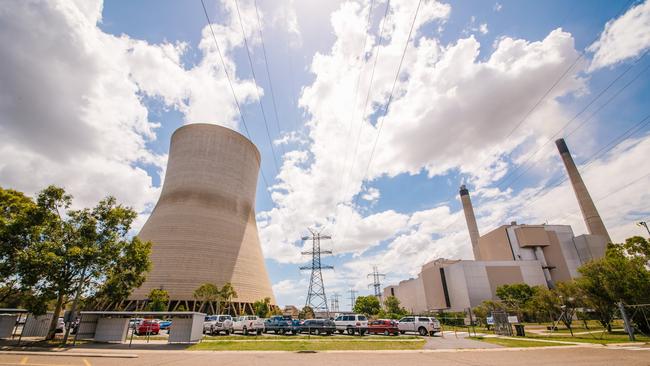State-owned CS Energy wants the federal court to keep Callide C explosion report secret
Households have paid bigger bills since the Callide C power station blew up in 2021, but the Queensland government company behind it wants to keep the reasons for the explosion secret.

A report into the causes of the Callide C power plant explosion in 2021 should not be made public because it was commissioned to protect the Queensland government’s legal position, the Federal Court heard on Tuesday.
State-owned CS Energy took to the Federal Court to try to block the release of documents relating to the investigation by forensic engineer Sean Brady into the causes of the explosion that crippled the Callide C power station three years ago.
The explosion crippled the power plant and played a significant role in helping drive up power bills for both households and businesses across the east coast grid.
Lawyers for CS Energy revealed for the first time on Tuesday that Dr Brady’s investigation had not been directly commissioned by the state-owned company, but instead by CS Energy’s lawyers, Norton Rose Fulbright.
The Queensland government, which faces an election this year, has repeatedly claimed it wants Dr Brady’s report delivered as soon as possible. Premier Steven Miles told parliament in February the government looked forward to “making as much of it public as we can”.
But Tuesday’s legal revelations mean Dr Brady’s full findings may never see the light of day, after CS Energy and Norton Rose Fulbright claimed the report’s contents – and correspondence about delays to its delivery – are covered by legal professional privilege and should not be handed over to the private investors in Callide C suing to access its contents.
When his investigation began in June 2021, CS Energy said Dr Brady would “assess both technical and organisational factors that could have contributed to the incident”.
“A report will be published with findings from the investigation so that the lessons learned can be shared with our peers in the power generation industry,” said chief executive Andrew Bills, who has since left the company.
But the Federal Court heard on Tuesday that Dr Brady was instructed by Norton Rose Fulbright, on behalf of CS Energy, to give advice on the cause of the incident – and a second disaster at the plant in 2022 – and “any potential claims that may arise out of those incidents”.
Damian Clothier KC – one of Brisbane’s top barristers – attended the routine court hearing to flag CS Energy’s opposition to the handover of the report and associated documents, saying its contents were probably covered by legal professional privilege.
“(He was employed) to provide information and ultimately a report to inform Norton Rose Fulbright Australia, giving legal advice to my client,” he told the court.
CS Energy was due to produce documents related to Dr Brady’s report to the Federal Court on Tuesday in response to a subpoena issued by Czech energy company Sev.en, an investor in Callide now engaged in a sprawling legal battle with the state government-owned utility.
Dr Brady had also been ordered to produce any draft reports he prepared, and any correspondence with CS Energy and its advisers on the timing of the report – including any requests made to pause its preparation or delay its delivery.
Rather than hand the documents over on Tuesday, Mr Clothier said, CS Energy and Norton Rose needed time to go through them all to exclude any they believed were covered by legal privilege.
Lawyers for Dr Brady said the forensic engineer had been willing to hand over his documents to the court, but had been restrained from doing so by the privilege claims.
Appearing for Dr Brady, barrister Andrew O’Brien told the court his client had no “fight” in the matter.
“He wants to comply with the court’s order but has been told (claims of privilege) … may be made,” he said.
Sev.en’s barrister Michael Gvozdenovic said the privilege claim, first made last in legal letters between Sev.en and CS Energy, would be opposed by the investment group.
Legal privilege generally only protects confidential communications between a lawyer and a client and confidential documents, particularly those where the primary purpose is a lawyer providing legal advice or services to their client.
The fight over whether or not there is a legitimate argument to withhold the Brady documents will return to court next week.



To join the conversation, please log in. Don't have an account? Register
Join the conversation, you are commenting as Logout